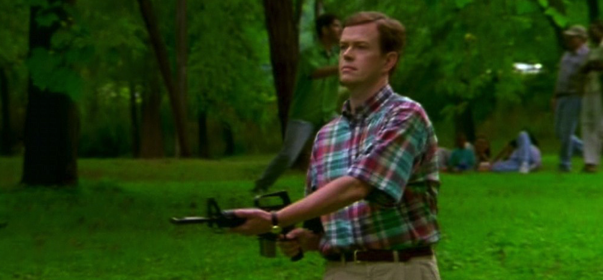


























































































The Monstrous Masculine:
Abjection and Todd Solondz's Happiness
Horror films often use the male as monster, though conventional ideology says
that it is not his masculine characteristics that make him monstrous. Barbara
Creed writes that “the male body is represented as monstrous in the horror
film because it assumes characteristics usually associated with the female
body;” that which makes him monstrous is not that which makes him male.
The thematic thread of Todd Solondz's Happiness, beneath its facade of
suburban anxiety and domestic despair, is that of deviant masculinity; the
nuclear family invaded by male monstrosity. In mapping Billy's horrific
trajectory towards maturity, the film's project is to present masculinity as
abject via the specific rites of passage that he must undergo in order to accede
to manhood. Male sexuality is constructed as monstrous because of the very
characteristics that are inherent to his experience of becoming a man. The film
addresses these issues through the generic conventions of the horror film, and
where these films traditionally work to annihilate the threat to patriarchy and
repress the abject, Happiness concludes with images of the paternal order in
crisis. It is in these final moments that Billy comes to embody the monstrous
masculine, passing into maturity while at the same time signaling a collapse of
symbolic law, illustrated by the failure of the paternal figure to prohibit the
incestuous bond that is established between mother and child. A link to the
.pdf can be found here.